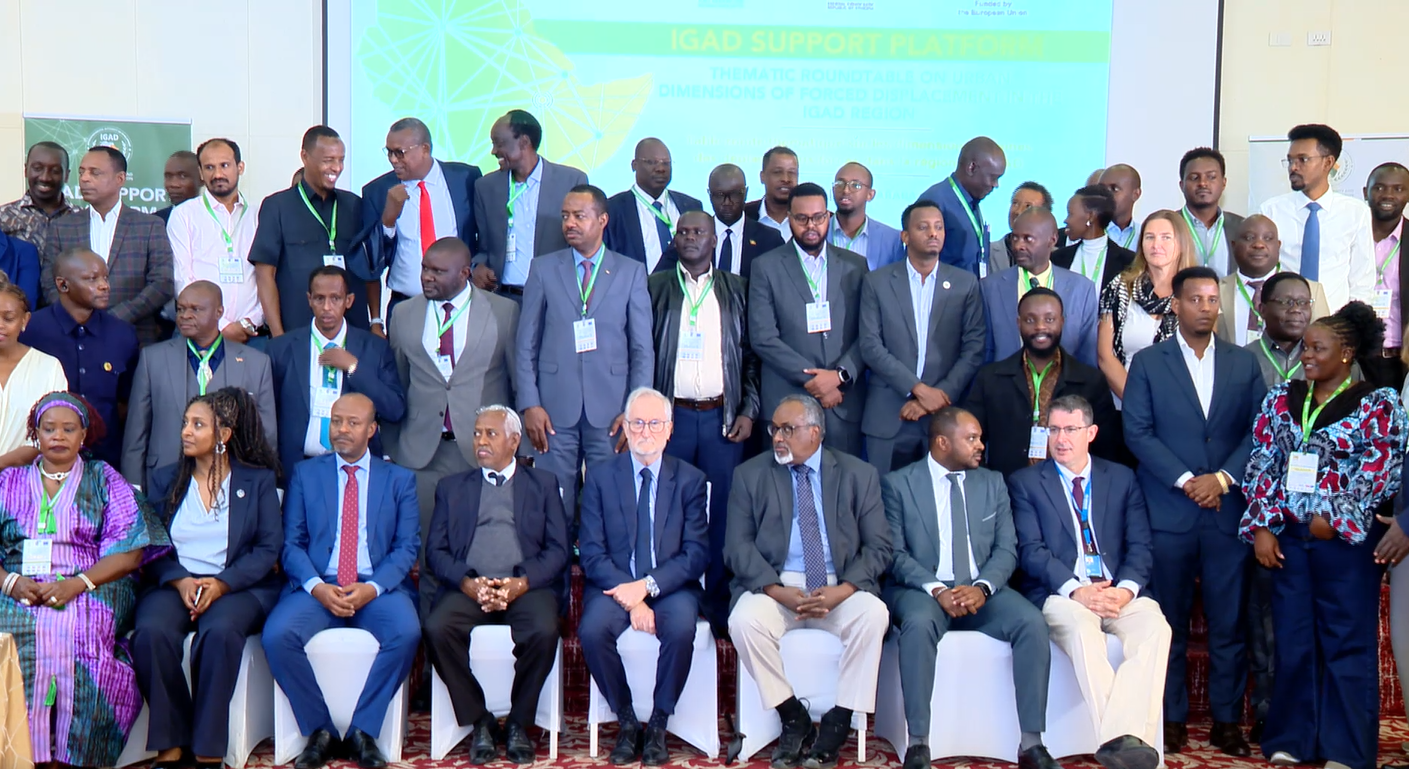Forum Stresses Inclusive Urban Development for Displaced Populations in IGAD Region - ENA English
Forum Stresses Inclusive Urban Development for Displaced Populations in IGAD Region

Addis Ababa, May 22, 2025 (ENA) --- Mayors of IGAD member states and partners have stressed the importance of inclusive urban development for displaced populations in the region.
A two-day forum titled “Urban Dimension of Forced Displacement in IGAD region” opened in Addis Ababa today.
In his opening remarks, Intergovernmental Authority on Development (IGAD) Deputy Secretary General Mohamed Abdi Ware said that cities are often at the forefront of displacement issues stemming from conflict, natural disasters, and economic instability.
He outlined the challenges facing urban areas, including land use, municipal services, and security, underscoring that the effectiveness of urban governance directly impacts national stability.
Moreover, he added that cities in the IGAD regions are being challenged by refugees of forced displacements, indicating that integration of rural migrants into urban settings is frequently mishandled leading to increased friction and conflict.
Lauding the resilience of mayors who manage these complexities with limited resources and infrastructure, Mohamed Abdi Ware acknowledged the essential support from partners like the European Union, UNHCR, and UN-Habitat, who contribute both technical expertise and empathetic collaboration.
As the region faces unprecedented challenges in peace and security, the deputy secretary general called for a sincere dialogue between urban centers and their peripheries, which he identified as a core issue in regional conflicts.
He expressed hope for a collaborative approach to address the pressing challenges facing cities throughout the IGAD region, from Sudan to Somalia.
Ethiopian Refugees and Returnees Service Advisor Zewdu Bedada on his part emphasized the pressing need for inclusive urban planning in Ethiopia, addressing the profound effects of migration and displacement on urban growth.
He stated that Ethiopia has been significantly impacted by forced displacement, with many displaced individuals arriving with limited resources and facing challenges in accessing essential services.
According to him, the influx strains urban systems that lead to overcrowding and social instability, calling for the urgent need for policies that promote social cohesion and sustainable development for both refugees and host communities.
Zewdu further announced the upcoming launch of the Makatet Strategy, aimed at transitioning from care-focused management of refugees to a development-oriented integration strategy within national systems.
Additionally, the Makadet Strategy, will support local development and climate adaptation in the southeastern Somali region, facilitating the transformation of camps into urban settlements.
The plan emphasizes climate resilience and economic opportunities for both refugees and host communities, it was learned.
UNHCR Assistant Representative for Protection, David Karp, highlighted the unprecedented displacement challenges facing the region, escalating situations that exacerbate existing strains on resources and urban systems.
Commending the progress made through the IGAD-led Nairobi Declaration, which has established a pioneering framework for refugee inclusion and self-reliance, he said the subsequent Djibouti and Kampala Declarations further support this shift from humanitarian assistance to development-oriented approaches, benefiting both refugees and host communities.
Karp further commended the innovative initiatives such as Kenya's Sharika Plan and Ethiopia's upcoming Makatet Strategy, which aim to transform refugee camps into integrated municipalities.
As protracted displacement situations persist, the assistant representative stressed the importance of accelerating efforts to enhance refugee inclusion and self-reliance within national systems, noting that a recent socioeconomic survey in Ethiopia demonstrated that full economic inclusion could significantly reduce assistance costs and stimulate local economies.
Despite these advancements, Karp expressed concern over funding shortfalls that threaten UNHCR's operations and the progress made in refugee inclusion.
He urged all partners — governments, development actors, and civil society — to mobilize support and ensure financial commitments translate into actionable initiatives.